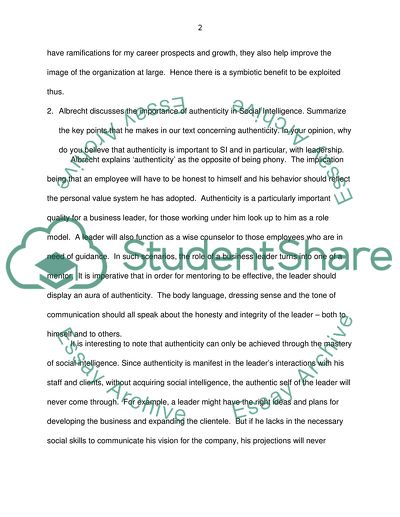Cite this document
(“Social Intelligence Assignment Example | Topics and Well Written Essays - 1000 words - 1”, n.d.)
Social Intelligence Assignment Example | Topics and Well Written Essays - 1000 words - 1. Retrieved from https://studentshare.org/human-resources/1795242-reflection-paper
Social Intelligence Assignment Example | Topics and Well Written Essays - 1000 words - 1. Retrieved from https://studentshare.org/human-resources/1795242-reflection-paper
(Social Intelligence Assignment Example | Topics and Well Written Essays - 1000 Words - 1)
Social Intelligence Assignment Example | Topics and Well Written Essays - 1000 Words - 1. https://studentshare.org/human-resources/1795242-reflection-paper.
Social Intelligence Assignment Example | Topics and Well Written Essays - 1000 Words - 1. https://studentshare.org/human-resources/1795242-reflection-paper.
“Social Intelligence Assignment Example | Topics and Well Written Essays - 1000 Words - 1”, n.d. https://studentshare.org/human-resources/1795242-reflection-paper.


